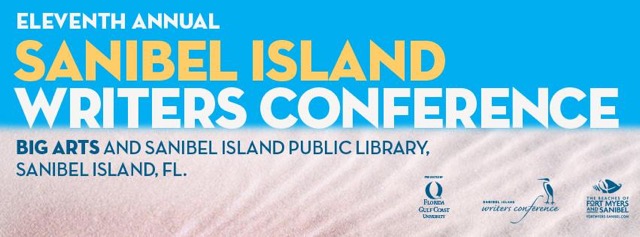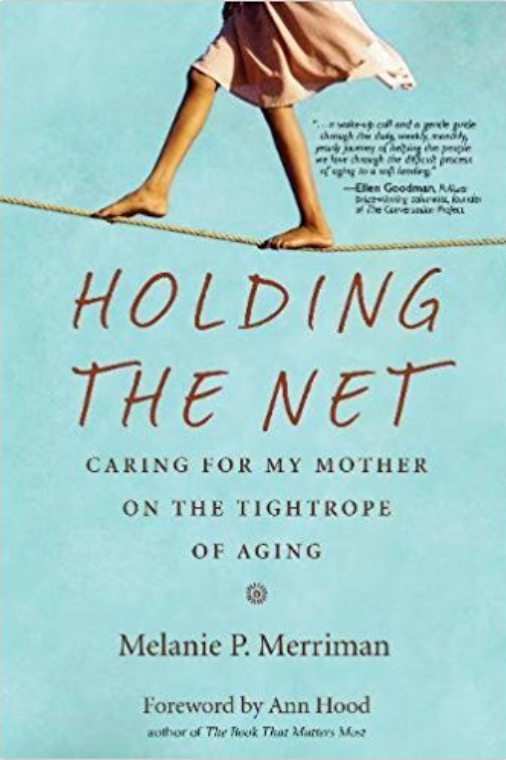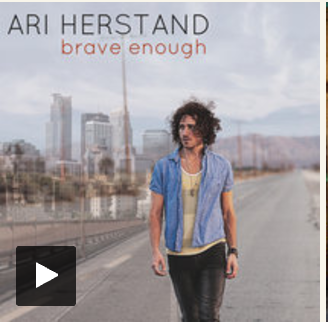EPISODE 17: GYM RATS, CIRCUIT BOYS, PAPI CHULOS, FASHION QUEENS, AND BEARS, WHICH ONE ARE YOU?
Best way to listen is to subscribe by clicking on iTunes.
Android users click here.
ANDREA: This is Writing Class Radio. I’m Andrea Askowitz your host and your teacher. If you get inspired by true, personal stories and want to learn a little about how to write your own, this is your podcast.
Today you’re going to hear from Bo. Bo’s story is about the time he got blocked from a 1-900 gay chat line. Later in the episode I talk to Bo. We met on Miami Beach to talk about his life now, 24 years after the incident he writes about. We talk about perspective and how sometimes it takes years to figure out that the way we thought or the things we did were totally fucked up.
WARNING: The story you’re about to hear contains explicit language, so if you’re listening while driving carpool, you might want to tune into FM radio and listen to something more appropriate, like Drake.
Bo: I moved to Miami in the early 90s and chose to live in the heart of the gay ghetto, South Beach. I had grown up in a small southern town in the Bible Belt, and I wanted to live in a place where being gay wasn’t an issue; in South Beach being gay was celebrated. Within walking distance were gay clubs, gay restaurants, a gay gym and there were gay people everywhere. But I soon learned that shared sexual orientation didn’t guarantee community. While I had envisioned scintillating conversation with like-minded intellectuals, what I found were groups and cliques that I just didn’t fit into-gym rats, circuit boys, fashion queens, bears, papi chulos, club kids.
The ubiquitous handsome, muscle men with the chiseled bodies of Greek and Roman gods that one admired from afar quickly lost their allure when they opened their mouths and screamed “HEY GIRLLL!”
I wanted to work hard and have a career and here I was surrounded by people who were living for the moment. So most weekends when others were out “partying,” one of my friends from home, Eric, would come over to watch TV.
In these pre-Internet days, I was amused by the late-night commercials for local “chat lines.” A second-rate stripper-looking model preened on a sofa holding her telephone and tossing her hair. She’d say, “Hi, I’m Amanda, and I just love to talk to hot singles in my area. You never know who you might meet!” The commercial ended with Amanda opening the door to a handsome guy carrying a bottle of champagne. And wouldn’t you know it, Miami Beach TV had a GAY version of this. A muscular guy holding a football said, “Hey guys, do you want to talk to hot men in your area? Call the man to man chat line and talk to hot local guys…”
Eric and I couldn’t believe that such a thing existed, so we dialed the number. There was no ring, just a short pause, and then a thumping synthesizer beat.
A man’s voice spoke, not the jock carrying the football. No, it was the voice I couldn’t bear…that GAY voice. A very gay voice trying to sound masculine and it wasn’t working. “Hi Guys, thanks for calling the Male Room, THE place to cruise for hot man on man action. I’m Trevor, your cruise master…” This was the voice that made me ashamed to be gay; it was the voice that people in the straight world would hear and try to lump me into a category I didn’t want to be in.
Trevor explained that you could “cruise the ads” but to interact, you had to record a quick intro, hit the pound button, then you had 10 seconds to “tell the guys who you are and what you want!” You could hit the pound key to move on, press one to send a private message, or star to connect live. The “ads” shocked me.
BEEP. “Larry: Hi guys, hot leather daddy in Wilton Manors looking for submissive guys who like discipline to come play in my sling!” Oh that’s sick!… GROSS!
BEEP. “Carlos in Hialeah. Latino thug looking to chill and smoke yerba, daleee!” Oh my God--Illegal Drugs!
BEEP. “Arvin: I’m looking for hot, hot s-s-s-ex, only h-h-h-ottt ot guys with large ARG p-penises.” Bless his heart, he has Tourettes.
BEEP. ”Devon bottom… I’m a hot masculine bottom looking for someone to come fill me with raw.” Oh my GOD, in the midst of an AIDS epidemic?
BEEP. “DL Brother, Yo hot body body brother on the DL looking for discreet men on the DL, hit me up.” I had recently learned that DL meant down low…oh no! He’s cheating on his wife!
I found it horribly depressing that men all over South Florida were lying in their beds jacking off on this gay phone line. Where were the book clubs? Where were the professional networking associations? The political discussion groups? I didn’t want to be part of this parade of freaks... I didn’t want to be one of those gays—and I realized, I didn’t want THEM to be that kind of gay.
I wanted so badly for gay people to be just like straight people, or my at the time idea of straight people—Ozzie and Harriet with a white picket fence. Ozzie and Harriet were not into leather. I wanted to jolt them out of this. Eric and I discussed what the most jarring, un-erotic message I could leave and we decided I should use my preacher voice.
For my intro I sang a bar from the hymn “Jesus Saves” in a nasal, backwoods voice. “Jesus Saves” and then channeled the Baptist preacher from my grandmother’s church: “Brothers, homosexuality is a SIN, an abomination to God, but Jesus died on the cross for you and if you repent, you can be saved from an eternity in hell.”
It took no time for responses to come pouring in.
BEEP. “Hey asshole, get the fuck off this line!”
BEEP. “Hey preacher, how big is your cock?”
BEEP. “I’m gonna fuck you up the ass!”
Eric and I laughed hysterically. I pretended this was a big joke, but on some level I felt like I was doing something more important. In the book Catcher in the Rye, Holden Caulfield says he wants to be the catcher in the rye, to protect the children from going over the side of the cliff. I envisioned myself the gay catcher in the rye, keeping these gay people from doing dangerous things, sinister things. I wanted to save them.
The next day, Eric came over again and suggested I continue my mission of “saving gay souls.” I giddily agreed and dialed the number again. Instead of the thumping disco beat greeting, I only heard Trevor’s voice in a loop. “Sorrrrry guy, you’ve been blocked...Sorry guy, you’ve been blocked…
Those faggots! They blocked me!
On Sunday, a group of us went to Eric’s for dinner and we told everyone about our weekend telephone calls. Everyone wanted to hear me do it, and Eric’s number wouldn’t be blocked. So we dialed.
We heard “Bumpabumpabumpabump...Welcome to the male room, the place for men to cruise. This is Trevor the cruise master. Guys we have heard that there have been some Jesus freaks terrorizing people on the line and we just want you to know that we’ve taken care of that. Happy cruising!
The room exploded with laughter.
It would be many years before I would become comfortable enough with myself that I didn’t view people who were into different things a threat to me.
I realized that the message I’d been delivering them was not unlike the church messages I’d grown up with and had come to Miami to flee.
ANDREA: Later in the show you’ll hear a conversation I had with Bo. But first I want to tell you about our sponsor THE SANIBEL ISLAND WRITERS CONFERENCE, one of the best conferences in the world. I taught there last year and can’t believe my luck that I get to teach there again. What I love about this conference is there’s a total blending of students and teachers. It’s like a big party.
I sat down with Tom Demarchi the creator and director of the Sanibel Island Writers Conference to ask him why he thinks this conference is so great.
TOM DEMARCHI: And I attribute all that praise and goodwill to the strength of our lineup. The people who came in and taught the workshops really bring their all every year.
I've just been really lucky in that the people that I enjoy reading and that I know have a good reputation also turn out to just be stand-up human beings.
ANDREA: Sanibel Island Writers Conference, A POWERHOUSE LINE UP of standup human beings INCLUDING: Richard Blanco, Joyce Maynard, Steve Almond, Darin Strauss, Karen Tolchin, Steven Elliot, and Sue Monk Kidd. Awesome, awesome storytellers and authors. And you can take classes with all of them. Including me.
November 3-6, 2016. It’s also really, beautiful, perfect beach weather. Click the link on our website for more info. Register now before it sells out.
ANDREA: When Bo was 26 years old, he moved to Miami Beach from the deep South. He wanted to find a safe place to be gay. Twenty-four years later, I sat down with Bo on Lincoln Road, which is the heart of Miami Beach. We talked about coming out and being comfortable with himself. I wanted to know what has changed.
ANDREA: We’re eating, so excuse the chew. But um, we’re talking about coming out.
BO: I was probably about 32 and my mom came to Miami Beach for the weekend to visit me. I finally came out to her and she cried and was very upset but over the weekend she sort of seemed to come to terms with it.
At first she was like, “We can’t tell your daddy, it will kill him.”
My dad would see a billboard with a woman in a bikini “That’s an attractive looking young lady.” And look at me for a reaction. When he came to Miami he’d see all these gay guys. Two guys kissing, “Good God almighty, what the hell?” He was totally freaked out.
A: But that was before he knew. That was before he knew that you knew he knew.
B: Exactly. But I think that was a genuine visceral shock reaction.
A: He had the reaction you had when you first saw them.
B: Kind of. What I always didn’t like or what I was afraid of was that people would see people like that and put me in that category. That was always the issue I had. The fear that I had.
ANDREA: Bo was still a kid when he moved to Miami Beach and called that hotline, trying to distance himself from the queeny gays.
I get it. When my mom first met Victoria, who is now my wife, she gave me a high five like a frat boy. I knew exactly why my mom did it. And I was like, BAM!
I think it’s pretty universal, especially when we’re young, to worry about what people might think of us based on the people we associate with. And sometimes it takes writing a story to reveal to ourselves where we were and what we’re still trying to overcome.
Okay, back to Bo’s visit with his mom...
BO: And then after a couple of days she realized that everybody else in my world, everybody else knew and she was like we can’t hide this from him, we have to tell him. And then she went home and told my dad, because I wasn’t going to tell him.
He called me a few days later and he was totally cool and supportive and it ended up being a good thing.
ANDREA: So look ok there’s two guys walking. One of them is wearing the typical beige pants. Right? The gay male uniform. Do you see that? two men?
BO: Yes.
ANDREA: Maybe those are gay guys, you think?
BO: Ahhhhh, probably. They look like kind of like a couple.
ANDREA: How do you feel when you see guys like that now?
BO: Now, I think how nice that they can be in a place they can walk around and nobody will bother them or harass them.
ANDREA: Now, if you saw the guy in the g string in the feathers at a gay pride parade or walking down Lincoln Road, how would you feel?
BO: I would not care that people see that and are going to think I’m like that because my perspective is totally different. I’ve grown up and I’ve matured and it’s not an affront.
A: When did that change? And how do you think that your perspective has changed?
B: Around the time of that story. I started realizing that probably a lot of those people that I saw as um, that i judged or whatever had gone through rough times themselves. As I got to know people, that contact with people who are different and understanding where they’re coming from. Kind of changed my…
A: So you made friends with the Hey Girls.
B: Yeh, and then just kind of becoming more comfortable with myself made me less predisposed to judging others or being threatened by their self expression.
ANDREA: I don’t think Bo would have been able to write this story 24 years ago without everyone thinking the story was mean. As it was, one woman in our class called him out for being homophobic. And you may also.
I think the story could have been strengthened if Bo had made fun of himself as hard as he made fun of the papi chulos and the other gay characters he imitated. When a narrator makes fun of him or herself it shows that he knows himself and it shows evolution. It shows there’s been a change in that character.
But what impresses me is Bo’s commitment as a writer to be true to his character then. The story reflects the way he felt then. He’s able to tell it now because he knows NOW that what he did was a dick move.
I was thinking that just like Bo was on a mission to save the gay soul, I’ve brought it on myself to save the straight soul. I feel it’s my public duty to improve gay-straight relations.
When we first moved into our house, we heard, that our neighbor didn’t like us because we were lesbians. My neighbor’s housekeeper told our housekeeper. So, instead of waiting for a welcome basket, I knocked on her door. I really thought that if she didn’t like gay people, she needed to meet me. Like I would do her a favor and improve her life. I was sure she’d like me. So my whole family went door to door to meet the neighbors. Sebastian was in the stroller, Tashi was on a skateboard. Vicky even went along with it. I told her it was an American thing. And everyone was super nice except the woman next door who has a daughter, who was 12 at the time. When we came by, the daughter was “in the shower.”
Since then whenever i go over there to bring cookies, I forget to wear shoes and a bra.
Here’s your assignment: Set a timer for ten minutes. No, set your timer for eleven minutes, just to be queer. That’s it, 11 minutes. All you have to do is write without stopping. Keep your pen moving or your fingers tapping.
Also follow your mind. Go where it takes you. The thing about the prompts is they are just meant to get you started. If what you write has nothing to do with the prompt, that’s okay. There’s no wrong way to do a prompt.
When the timer goes off, stop. Then read what you wrote into your voice memo on your phone and email it to us at info@writingclassradio.com
Some of your stories will end up right here on our show.
Here’s the prompt: Everyone is hiding something. What are you hiding? In what way are you in the closet?
Writing Class Radio is produced by Diego Saldana-Rojas, Allison Langer, and me, Andrea Askowitz with editorial help from Alejandro Santiago and Claudia Franklin NEW CUT heme music by Adriel Borshansky. Additional music by Blue Jay. and Cat Cousteau. Links to all musicians below.
I want to thank all the musicians who donated their original music.
Writing Class Radio is recorded at the University of Miami School of Communication.
This episode is sponsored by Sanibel Island Writers Conference. Listen, this is such a good conference. I’ll be there. I hope you’ll be there too.
If you like Writing Class Radio, please rate us on iTunes. I just figured out how to do it from my iphone. You go to the podcast app. Search Writing Class Radio. Click on the big logo. Then click Review. Did you get that? If not, Google it and tell the world how great we are.
There’s more writing class on our website: writing class radio dot com.
Study the stories we study, listen to our craft-talks, follow our daily prompts and time yourself. Then record what you wrote and send it in.
There’s no better way to understand ourselves and each other, than by writing and sharing our stories. Everyone has a story. What’s yours?














